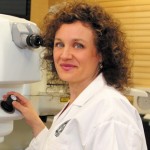There are three basic components of cost to any surgical procedure, minor or major: facility fee, anesthesia fee, and surgical fee. In general, the facility fee is the most expensive component, then the surgical fee, and then the anesthesia. Fees are set by Medicare, through the Center for Medicare & Medicaid Services (CMS); Medicare’s fee schedule is the basis of private insurance fee schedules, too, even if you are not yet in Medicare or Medicaid.
First, ask your doctor about the site of your surgical service, since this will determine the facility fee, generally the most expensive part of the surgery, and can save you as much as half. There are three possible places for your surgery to occur: the hospital, the ambulatory surgery center, or the doctor’s office. The site of service will determine the facility fee. The hospital or hospital outpatient surgery facility will generally charge Hospital Outpatient Department (HOPD) facility fee rates (even if the surgery is outpatient and does not require admission to the hospital for an over-night stay). The ambulatory surgery center (ASC) facility fee is usually about half of the HOPD rate. The doctor’s office may have no facility fee at all. In summary, in general: HOPD$>ASC$>MD office$. There may be exceptions, so you must do your own homework. Again, these numbers are determined by CMS, an agency of the federal government.
The facility fee in an Ambulatory Surgical Center (ASC) is about half that of a Hospital Outpatient Department (HOPD). Nobody likes to pay double if it’s not medically necessary, even if it is only taxpayer money. Ambulatory surgery centers are designed to provide same-day surgical procedures that do not require a blood transfusion, or more than 23 hours stay for nursing care. The federal government has a list of surgeries that can be done in an ASC, and your doctor can tell you if it’s a safe option for you. Again, the facility fee in an ASC is about half that of an HOPD. Nobody likes to pay double if it’s not medically necessary, even if it is only taxpayer money.
If your procedure is minor and involves little bleeding or need for anesthesia, it may be possible to perform it in the doctor’s office. Your doctor can tell you if he or she thinks this is a good idea, based on the requirements for pain control, nursing, and equipment.
To be continued.
For more information you can visit www.richenseyecenter.com or if it is time for your eye exam please call Richens Eye Center at 1-435-986-2020.
